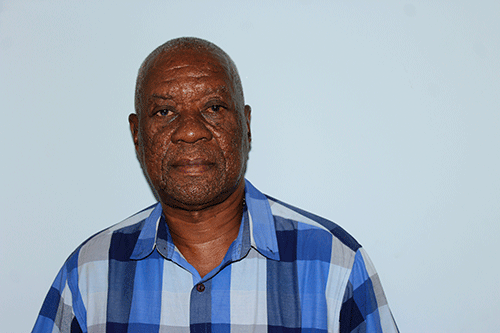The big issue confronting humanity today is not Covid, HIV-AIDS, Ebola, nuclear weapons or climate change. The biggest challenge, in my view, is how to end global poverty and inequality. In early 2015, ‘eradicating extreme poverty for all people everywhere by 2030’ topped the list of UN Sustainable Development Goals expected to guide the post-2015 development agenda. But in retrospect, we are nowhere closer to addressing that human indignity.
Let me as a point of departure start this essentially contested issue with my conclusion: poverty is not pre-destined, nor is it insurmountable. Why? Mahatma Gandhi’s much-quoted insight is a telling statement on how governments globally have failed to address the problem of poverty. Gandhi says: “nature has enough to satisfy everyone’s needs, but not to satisfy anybody’s greed.”
In this intervention, I narrow my discussion to the ongoing debate about poverty in Namibia. A conclusion reached by the World Bank that a shocking 1.6 million people in Namibia are living in poverty, has sparked a heated debate from all different quarters of our society. ‘There are lies, damned lies and statistics’. That aphorism, which is attributed to the 19th century British Premier Benjamin Disraeli, is frequently shown to be accurate in most cases. This is particularly courtesy of politicians when they pontificate about their governments’ economic achievements.
Presidential spokesperson Alfredo Hengari seems to be in that position when disputing the World Bank’s poverty statistics on Namibia, saying the situation on the ground does not reflect the upper-middle-income tag. Hengari said: “The government has lifted more than 70% of the population from extreme poverty from the dawn of independence. Looking at our rural households, they are living a normal, healthy life, but they don’t live on US$5, 50 per person per day,” he further argues.
The story of rural development, or lack of it, starts in the cities. The young (mostly men) hanging around street corners in our cities and towns under the scorching sun looking for a piece job, the shanty towns and informal settlements, and all the squalor and poverty that go with these, point to something that has badly gone wrong somewhere – the countryside/rural areas.
Are the rural areas in Namibia then in varying stages of neglect and decay and thus centres of out-migration? Historically, the movements of people have been from the countryside to cities because of both push and pull factors. In England, the enclosure movement of the 19th century pushed people to the cities. And in other countries that were industrialising following the Industrial Revolution in England, pull factors were at work as people were needed to keep the wheels of industry running.
It is a different ball game in most of Africa. Here, poverty is the main push factor, and because unlike their counterparts in other parts of the world African cities do not have much to offer, many new immigrants end up joining an army of job-seekers desperate to make a living. So, which normal and healthy life is the rural folk living that Hengari is talking about?
When Hage Geingob became Namibia’s third president, he declared a ‘war on poverty’. He said: “addressing economic inequality is both a moral imperative and a necessity for maintaining political and ethnic tranquility”. But it is the same Presidency that is now vigorously disputing the World Bank’s 1.6 million poverty figures.
They have hastily gone into a denial gear/mode without taking a hard look at the figures before drawing their conclusions. On the other hand, the Namibia Statistics Agency, in defence of the Presidency, says the country’s national poverty line is N$520.80 per person per month, which translates to 17.4% of Namibians being poor. Hence, 396 663 poor Namibians, as compared to the 1.6 million.
An irate editorial in The Namibian says: “Does the Presidency comprehend the impact of not being able to have enough food and to go an entire day without a meal? Do the bureaucrats take at least the official figures in confidence before initiating academic debates? What is the government really trying to achieve by splitting hairs about the extent of poverty in the country? The official poverty line of N$520 a month is laughable.”
The point is that there are still Namibians who are living in poverty as per the NSA’s own statistics. This is not by chance, but choice: economic deprivation is perpetrated when structural policy choices are made to favour the richest and most powerful people in a society.
Compare our case to that of one of our close friends – which has been following a socialist model of development. According to the latest data supplied by the World Bank, only 0.6% of the Chinese population lived below the country›s official poverty line of having less than US$2.30 at their disposal per day.
The question is: why should the 34th-largest country in the world, which is home to just over slightly 2.5 million people and rich in mineral resources, fish resources and human capital, still have inequality, poverty and landless people? Is there a way that we can radically restructure and redesign our economies to be based on a people’s and equality-centred philosophy in which inequality no longer kills?


